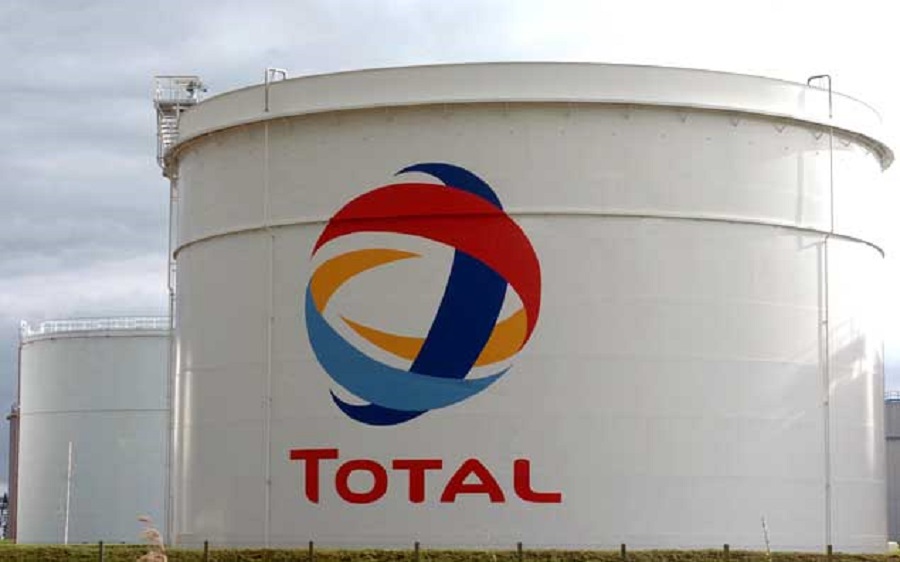The year 2020 was supposed to be a good one for the global oil and gas industry. Save for the unprecedented fangs of the Covid-19 pandemic, the IEA had forecasted in February that the global oil demand would grow by 825,000 barrels a day in 2020. On the contrary, lockdown measures restraining travel and other economic activities to contain the pandemic in many parts of the world had global oil demand down around 90,000 barrels a day from 2019. While the upstream sector had a direct hit owing to this reduced demand, the impact of the pandemic on the downstream oil industry caused the price of crude oil to fall significantly in a short period of time. GlobalData had forecasted that the energy sector would face downward earnings revisions of 208% in 2020.
READ MORE: Analysis: Total Nigeria needs a financial overhaul
With the pandemic leading to a slowdown in a wide range of business and personal travel, even gasoline demand had reduced and this has led to inventory challenges in both the distribution network as well as the refineries. In Nigeria, following the challenges of the pandemic, the federal government deregulated the downstream sector of the oil industry through the removal of fuel subsidy. While it presents a level playing field for the downstream oil private sector, it didn’t take long before companies like Total Nigeria plc. started caving into the overall reduction in inventory from the reduced demand for oil products in Q2 2020. Consequently, the company witnessed a 45% reduction in inventories from N33.6 billion as at 31st December 2019 to N18.5 at the end of Q2 2020.
READ ALSO: Nigeria’s Foreign Trade hits N9.18 trillion in Q3, as non-oil export rose by 374.5%
How the exogenous shocks affected an already ailing Total Nigeria
The success or failure of any organization depends on both the macroeconomic environment as well as the operations of the company itself. For Total Nigeria, the timing for the crisis had been off as it too had operational challenges to deal with. In Q1 2020, the company had recorded a revenue drop of 9.3% to N70.2 billion compared to Q1 2019. While the headwinds of the pandemic might have played a small role in the decline at least in the latter part of the quarter, the loss after tax of N163 million it had recorded was 65.6% better than the loss after tax of the comparative quarter – a testament of the series of operational challenges it had from huge loans to raging expenses. While the company had set off on a strategic trajectory deploying a series of initiatives around cost efficiency, process optimization, as well as a significant reduction of working capital requirement and finance costs, Q2 had its own troubles waiting.
Restrictions in the oil market had led to weaknesses across product lines. Total revenue fell by as much as 50% from N73 billion in Q2 2019 to N36.5 billion in Q2 2020. Revenues from petroleum products had contracted by 55.7% while lubricant sales also fell by 26.7% in the quarter. Across the company’s core business sectors comprising Networks, General Trade, and Aviation, revenue from aviation experienced the most decline, falling by 83.0%. Its performance can be predominantly attributed to the fall in demand owing to strict lockdown measures even in major Nigerian cities.
READ MORE: Five oil majors reduce value of their assets by $50 billion in Q2
Outlook
The outcome of the company’s internal and external challenges is a loss after tax of N373.9 million from N604 million in Q2 2019 – an alarming drop of 161.9%. However, its strategic intent is also visible. Net cash balance was a negative N19.6 billion at the end of the quarter, compared to negative N41.8 billion a year ago. Finance costs also declined by 76.1% to N830.3 million as the company sought to reduce its leverage position. In the same vein, borrowings came at N31.0 billion in Q2 2020 as opposed to the N39.9 billion in Q2 2019. Yet, the success of the company in the immediate future is somewhat bleak.
Download the Nairametrics News App
This is because of the conditions of the oil market and overall economic landscape which is set to take a few years before returning to the norm as well as the financial and operational position of the company. That said, its earnings per share (EPS) of N4.37 and its price-to-earnings ratio of 18.12, reveal that the company has a good potential to make a rebound. However, it could take a few years. Hence, investors must be willing to wait for the long term. With its share price of N79.10 at the far bottom of its 52-week range of N78 and N129.50, it’s a great time to purchase its shares if you are willing to wait the long term.














